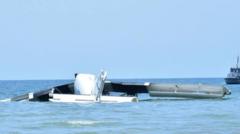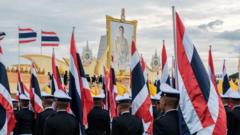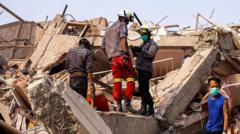In a remarkable turn of events, Paul Chambers, an American lecturer in civil-military relations at Naresuan University in Thailand, was granted bail by a Thai court following his detention on charges of insulting the monarchy. His arrest, which occurred last week, has raised alarm among U.S. officials and human rights advocates, prompting scrutiny of Thailand's stringent lèse-majesté laws.
American Scholar Accused of Royal Insult Granted Bail Amid Legal Battles in Thailand

American Scholar Accused of Royal Insult Granted Bail Amid Legal Battles in Thailand
U.S. academic Paul Chambers, facing lèse-majesté charges in Thailand, has been released on bail after U.S. officials raised concerns over his detention.
The legal aid organization representing Chambers, Thai Lawyers for Human Rights, confirmed his release on Thursday after an appeals court overturned an initial rejection of his bail request. The court set his bail at 300,000 baht, approximately $8,800, but imposed conditions limiting his movement: authorities confiscated his passport, fitted him with an ankle monitor, and mandated he report to the immigration bureau every month. His lawyers argued that Chambers posed no flight risk given his long-standing ties to Thailand, where he has lived for over 30 years, and emphasized that he had not published any material deemed defamatory against the king.
Charged under some of the world’s strictest lèse-majesté laws, which stipulate severe penalties for insults against the monarch, Chambers is amidst a legal quagmire that could lead to deportation, following the revocation of his visa. Such primary legal challenges underscore the delicate balance between academic freedom and national sensitivities in Thailand.
Charged under some of the world’s strictest lèse-majesté laws, which stipulate severe penalties for insults against the monarch, Chambers is amidst a legal quagmire that could lead to deportation, following the revocation of his visa. Such primary legal challenges underscore the delicate balance between academic freedom and national sensitivities in Thailand.























